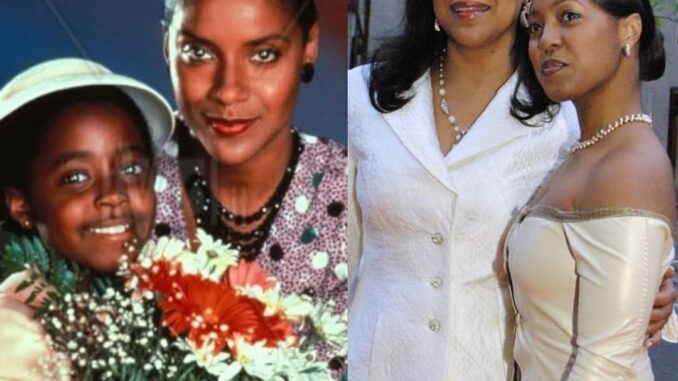
The Cosby Show, which aired from 1984 to 1992, was a cultural phenomenon that redefined the representation of African American families on television.
By 2002, the show had been off the air for a decade, but its impact was still being felt. The characters Rashad and Pulliam brought to life had left a lasting impression, demonstrating the importance of family, education, and love in the African American community. Their performances had not only entertained but also provided a sense of pride and visibility for many Black viewers.
In 2002, the friendship between Rashad and Pulliam was evident in various public appearances and interviews. The two actresses often spoke highly of each other, emphasizing the bond they formed during their time on set. For Rashad, serving as a mentor to Pulliam was a natural extension of their on-screen relationship. She provided guidance and support as Pulliam navigated her early career, reminding her of the importance of hard work and resilience.

Pulliam, in turn, expressed deep admiration for Rashad, viewing her as a role model not only in acting but also in life. This mutual respect and affection have allowed their friendship to thrive, transcending the boundaries of their professional lives. In the early 2000s, discussions about representation in media were becoming increasingly relevant. Rashad and Pulliam’s roles in The Cosby Show were often cited as examples of positive portrayals of Black families. Their characters showcased the value of education, ambition, and strong family ties, challenging the stereotypes that had long plagued African American representation in television.
Rashad’s success as an actress paved the way for others in the industry, proving that Black women could hold leading roles in mainstream media. Meanwhile, Pulliam’s transition from child star to adult actress exemplified the challenges faced by many young performers as they sought to carve out their own identities in a competitive industry. As they reflected on their journey in 2002, both actresses were poised to continue making significant contributions to the entertainment world. Rashad was establishing herself as a formidable presence in theater, earning accolades for her performances on stage. Pulliam, meanwhile, was transitioning to other roles and exploring opportunities in producing and directing.
Their friendship remained a source of strength, as both women continued to champion for better representation and more nuanced portrayals of Black characters in the media. Together, they exemplified the power of collaboration and mutual support in an industry that often emphasizes competition. The bond between Phylicia Rashad and Keshia Knight Pulliam in 2002 serves as a reminder of the profound impact of The Cosby Show and the friendships formed during its production. Their relationship reflects the importance of mentorship, representation, and resilience in the entertainment industry. As they navigated their careers, both women remained committed to uplifting each other, showcasing the beauty of their enduring friendship.
